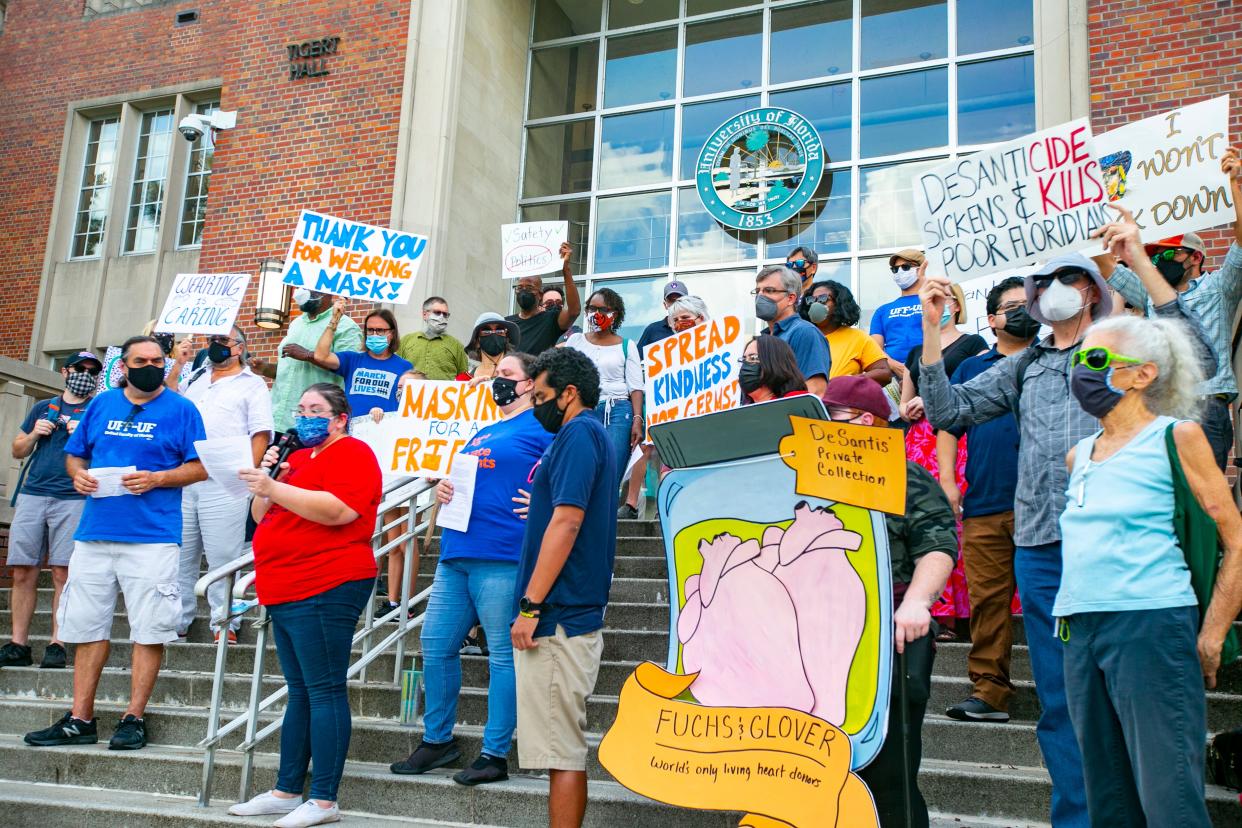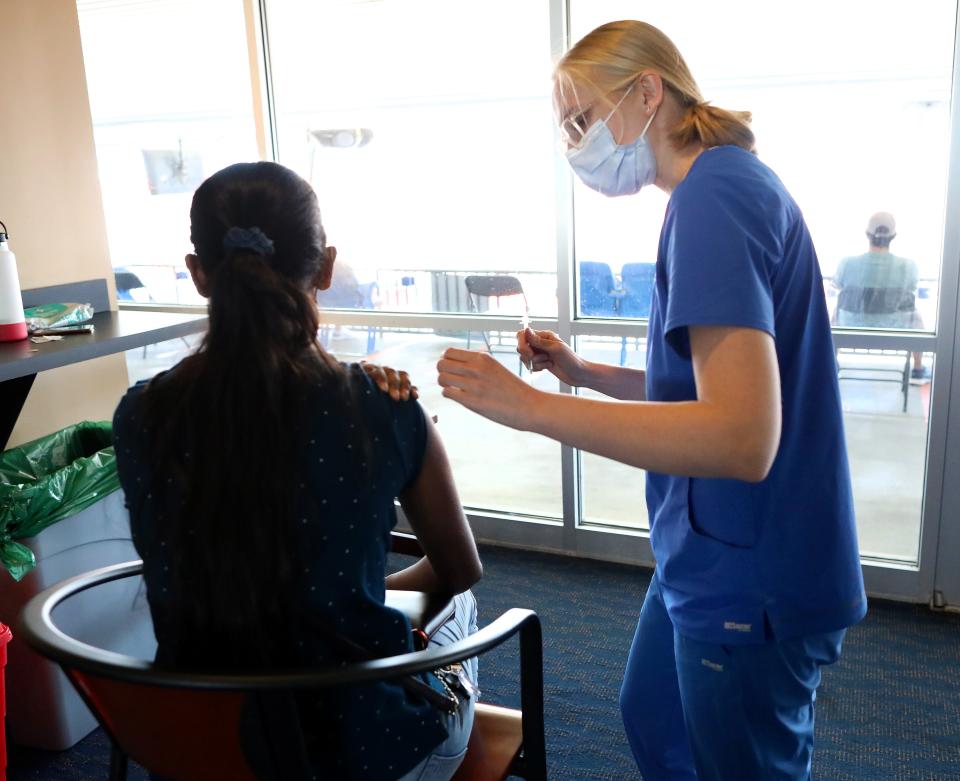Making the case for a vaccine mandate at the University of Florida

Two employee-organized bodies at the University of Florida (the United Faculty of Florida and UF Graduate Assistants United) staged a protest on Aug. 20 at Tigert Hall to voice their demands for COVID vaccine requirements and other relevant COVID safety protocols for the UF campus. This demand for COVID protections presents a stark contrast to Gov. Ron DeSantis’ disdain for COVID-related mandates, shown by his ban on the establishment of vaccine passport requirements in Florida, which includes public institutions like state universities.
Shortly after the semester started, there was a noticeable spike in COVID cases at the university, along with a precipitous rise in cases in surrounding Alachua County. With the clear and present danger of COVID still a reality in Florida and threatening the lives of UF students, faculty, staff and surrounding Gainesville residents, UF's administration harbors a responsibility — as institutional leaders and arbiters of the institutional mission — to ensure vaccine compliance via vaccine mandate establishment among UF community members to protect and save lives.
Vaccine mandates, while increasingly controversial in this new COVID reality, are generously supported by past data and studies delineating the positive impact of sweeping requirements for compulsory vaccination through lowered rates of disease. After the nationwide Childhood Vaccination Initiative of 1977 and a subsequent emphasis on the establishment and enforcement of vaccine requirements across schools, Kevin Malone and Alan Hinman in a 2003 publication demonstrated the links between eventual vaccine compliance and disease prevention: “In the 1977–1978 school year, the six states that strictly enforced the laws had incidence rates (of measles) less than half those of the rest of the country.”

Since this effort, vaccine rates and overall compliance have skyrocketed for those entering the secondary school system, reaching 95% for protection against life-threatening diseases. Vaccine compliance has also expanded into higher education, as many institutions and state systems require compliance with routine childhood immunizations. However, survey analysis has found significant inconsistencies in the immunizations covered within institutional policy/state law, along with the kinds of students included in said requirements, which has led to numerous high-profile disease outbreaks at higher education institutions.
Vaccine requirements are not a new concept to UF students and the larger UF community: all incoming students are required to submit documentation with evidence of vaccination against MMR (measles, mumps, rubella), Hepatitis B, MCV4 (meningitis) and TB (only for international students).
Alachua County Public Schools and some other Florida school districts defied DeSantis’ ban on COVID-related mandates and required mask-wearing among all students, leading the state to withhold the salaries of school board members. It’s no surprise, however, that these districts' policies are well supported by data and studies proving the effectiveness of mask-wearing in preventing the transmission of COVID among individuals in close contact (vaccinated or unvaccinated).
With the increased financial strain placed on public institutions in Florida, I can understand and sympathize with the trepidation UF President Kent Fuchs brings to the issue of mandatory COVID vaccinations. I would feel similarly uneasy in making decisions in opposition to the principal public official in the state, especially since attempts to do so have been met with threats of withholding of funds, fine assessments and the like.
However, one of the primary roles of the university president involves overseeing the execution and alignment of institutional actions with the mission of the university. In the case of UF, this includes enabling “… students to lead and influence the next generation and beyond for economic, cultural and societal benefit.” That kind of impact is virtually impossible if the university continues cycling significant waves of COVID infection that lead to sickness, debilitation and even death for members of the UF community.
Consequently, President Fuchs and the UF administration should consider swift action in mandating COVID vaccination for UF campus and community members.
Olivia Morales is a first-year PhD student in the higher education administration program at UF.
Join the conversation
Send a letter to the editor (up to 200 words) to letters@gainesville.com. Letters must include the writer's full name and city of residence. Additional guidelines for submitting letters and longer guest columns can be found at bit.ly/sunopinionguidelines.
Journalism matters. Your support matters.
Get a digital subscription to the Gainesville Sun. Includes must-see content on Gainesville.com and Gatorsports.com, breaking news and updates on all your devices, and access to the Gainesville.com ePaper. Visit www.gainesville.com/subscribenow to sign up.
This article originally appeared on The Gainesville Sun: Olivia Morales: University of Florida should mandate COVID vaccination

